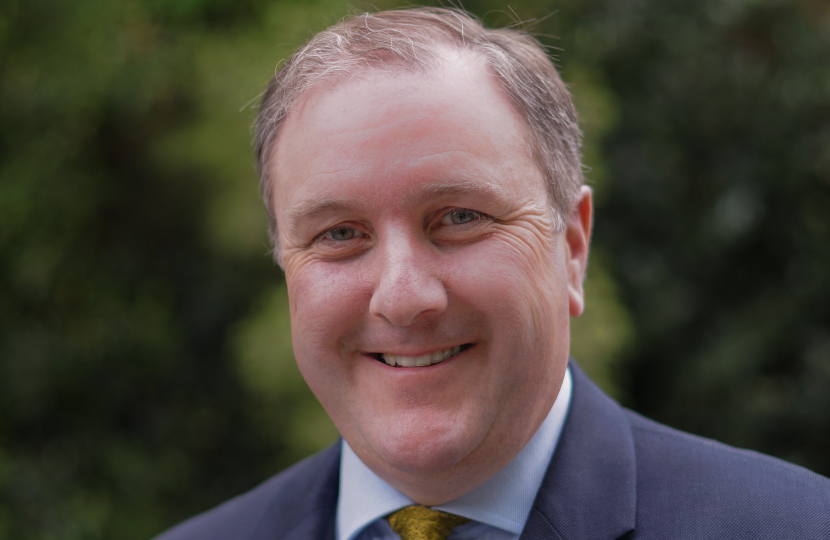
It’s usually sensible when writing articles for a local publication to remember the old advice that ‘all politics is local’, and therefore to write on local issues. However, there are times when events overseas are of such magnitude that they command everyone’s attention. Russia’s invasion of Ukraine is one such example (and that horror continues without much media attention recently), and the situation in the Middle East continues to unravel and develop, absorbing virtually the whole bandwidth of our news and information sources.
My inbox has been full of people expressing heartfelt views from all perspectives. So allow me to set a few initial baseline points which I believe to be fairly basic and uncontroversial:
1. The attack by Hamas was inhuman, cruel and a large scale terrorist act
2. Israel has the right to defend herself within the parameters of International Law
3. Hamas is not the Palestinian people (any more than the IRA was all Northern Ireland nationalists)
4. To criticise elements of some of the Israeli Government’s actions does not make one an anti-Semite, in the same way that condemning Hamas does not make one an Islamophobe
5. A humanitarian catastrophe is unfolding before our eyes
6. The most likely outcome is a deepening and widening of the mutual mistrust between countries that exists in the region with the disastrous consequences that flow from that.
Ten questions, 12 answers
I am, as constituents will know, not a black and white populist politician. To solve problems, one needs to sit on both sides of the table, to see the issue from the eyes of your opponent and to try to find a solution that broadly works from both or all perspectives. Most politics and international relations are the product of accommodation of the ‘other side’.
It is for this reason that I am both a supporter of the Conservative Friends of Israel and the Conservative Middle East Council. If – and sometimes it is a huge IF – we are convinced that we want to see a peaceful Middle East where international boundaries and the Rule of Law are upheld, one cannot be 100 per cent pro one and 100 per cent anti the other.
The best solution remains the two-state solution. The benefit of that solution is that it de-fangs Hamas. Talk of killing off (in a physical sense) or destroying Hamas is for the birds. Surely, if we learned any lessons from the fight with ISIS and the Taliban, it is that one cannot kill off an idea/dream/mindset/ideology?
All it takes is a few people to keep that ember aglow and it is always fan-able at some future point. The creation of two, mutually respecting, states removes the need for Hamas as the Palestinian homeland would be established and secured. However that hope seems more distant than ever. Why? How would any Israeli leader take part in such talks following the outrage perpetrated by Hamas on innocent civilians?
So, what should happen? Ask ten people and you will get 12 answers. I started with some basic points of principle so let me conclude with some:
1. The normalisation of Israeli relations with the wider Middle East should continue. No-one should let extreme fanatics knock evolving understanding and diplomatic relations off course.
2. The United Nations should strain every sinew to secure the unconditional release of the hostages
3. Hamas rockets and Israeli military action should then cease and the Gaza Strip become a UN-enforced protectorate or enclave, en route to the creation of the two-state solution
4. Humanitarian aid must be allowed through
5. As I said in the Commons, to maximise humanitarian relief Egypt needs support – and confidence that it will not become another permanent, terrorist-infested refugee camp
6. (and this is the really hard part) The government of Israel needs to be the ‘bigger man’, articulating that two wrongs do not make a right and that an ‘eye for an eye and tooth for a tooth’ is an out-of-date and irrelevant thought. Israel, as the democratic champion in the region, should always aspire to the higher calling that that status bestows.
A swift way forward
Much of that is easier said than done. President Biden’s words were important, when he said, in terms: the US naturally lashed out after 9/11 – the doing so met a pressing need for retaliation and vengeance. It is, however, not always the right thing to do.
As I said, easier for me to write this in the comfort and safety of North Dorset than, say, for my brother-in-law’s family in Tel Aviv to domestically advocate for.
We all know how we would like the Middle East to be. We just don’t know how to make it so. Let us hope, and pray, that a route map becomes clear – and soon.


